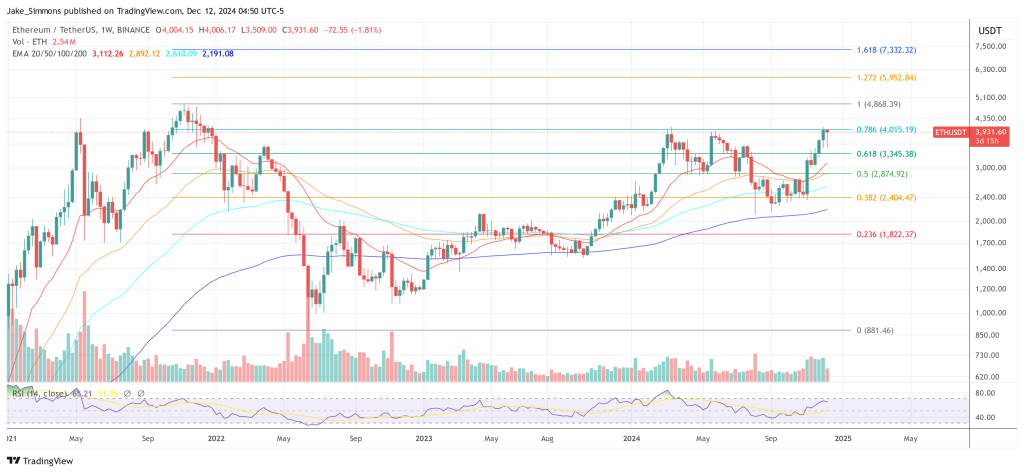Matthew Siegel, head of digital asset research at investment management firm VanEck, said in a post on suggested that there is. “It sounds (to him) like MSFT is open to an ETH ETF as long as it can collect staking income,” Siegel said.
Is Microsoft open to discovering Ethereum ETFs?
The interpretation comes after Microsoft Executive Vice President and Chief Financial Officer Amy Hood reiterated the company's long-standing commitment to digital assets. Although Hood did not specifically mention ETH, he noted that Microsoft began accepting cryptocurrencies as payment from customers in 2014 and has continued to do so ever since.
“I think it’s important to take a step back and realize that almost 10 years ago, actually maybe a little more, we first started accepting cryptocurrencies as a form of payment from our customers in 2014. And we continue to do that today. We were one of the first companies to recognize and embrace this after listening to our customers.”
She says the finance team regularly reviews all available asset classes, focusing on three key factors that will influence future decisions. “Our finance team, along with discussions with our board of directors, are considering all asset classes available to us. It is important to remember our balance sheet and cash balance metrics and targets; It's about preserving capital and having more liquidity to fund our operations, partnerships and investments.”
Hood said digital assets is “something we consistently cover in our boardroom” as Microsoft evaluates whether specific categories meet its strategic objectives. “Therefore, based on these three goals, we are looking at the entire asset class, including cryptocurrencies as a form of investment. “We will continue to evaluate different categories each year,” she added.
Sigel's reasoning that Microsoft could lean toward ETH-based products stems from the company's early acceptance of cryptocurrencies as a means of payment, its continued evaluation of digital assets at the board level, and its investment choices. It is based on three points: the role that yield generation can play in Siegel says:
1) They accept cryptocurrencies and believe in their usefulness.
2) The Board has already evaluated and will continue to evaluate digital assets in its reserves.
3) If the asset has a yield = MSFT is more likely to buy.
However, not everyone felt that this conclusion was certain. One member of the Ethereum community questioned Mr. Siegel's interpretation of Mr. Hood's remarks, saying it was a “leap of leaps” to assume that Microsoft might buy the ETH ETF. Still, he admitted, “It's a possibility.''
When asked if Microsoft might also consider Solana (SOL), Sigel simply answered, “Yes.” VanEck itself has experience in the altcoin ETF space, offering a spot on the Ethereum ETF, and filed for a spot on the Solana ETF with the U.S. Securities and Exchange Commission in June. With the Trump administration in place, experts believe spot altcoin ETFs like Solana are likely to be approved under new SEC Chairman Paul Atkins.
Meanwhile, Microsoft recently rejected another crypto-related proposal. According to a previous report from Bitcoinist, a group of shareholders called on the tech giant to include Bitcoin as a reserve asset. The proposal, which was voted on on December 10th, failed to garner support, with only 0.55% of shareholders supporting it, and a majority effectively rejecting the idea of adding BTC to Microsoft's balance sheet.
Notably, the US SEC approved the first spot Ethereum exchange traded fund (ETF) on June 23 of this year. One key element of the approval was the removal of the staking feature in response to regulators' concerns about staking potentially being classified as an unregistered security.
At the time of writing, ETH was trading at $3,931.

Featured image from YouTube, chart from TradingView.com


